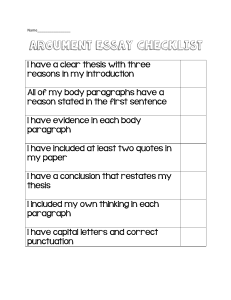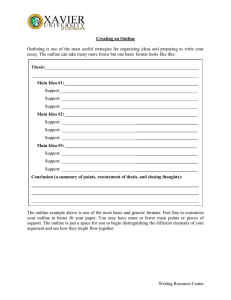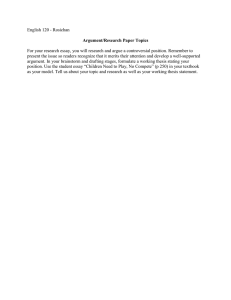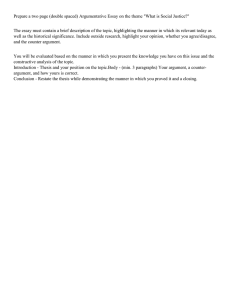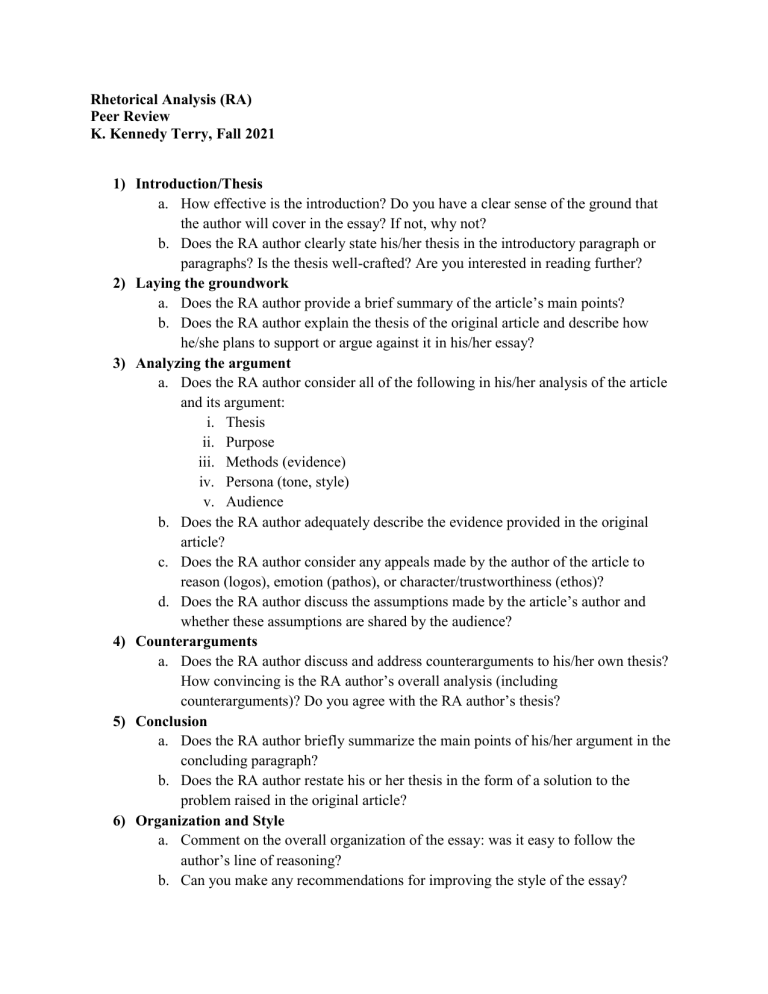
Rhetorical Analysis (RA) Peer Review K. Kennedy Terry, Fall 2021 1) Introduction/Thesis a. How effective is the introduction? Do you have a clear sense of the ground that the author will cover in the essay? If not, why not? b. Does the RA author clearly state his/her thesis in the introductory paragraph or paragraphs? Is the thesis well-crafted? Are you interested in reading further? 2) Laying the groundwork a. Does the RA author provide a brief summary of the article’s main points? b. Does the RA author explain the thesis of the original article and describe how he/she plans to support or argue against it in his/her essay? 3) Analyzing the argument a. Does the RA author consider all of the following in his/her analysis of the article and its argument: i. Thesis ii. Purpose iii. Methods (evidence) iv. Persona (tone, style) v. Audience b. Does the RA author adequately describe the evidence provided in the original article? c. Does the RA author consider any appeals made by the author of the article to reason (logos), emotion (pathos), or character/trustworthiness (ethos)? d. Does the RA author discuss the assumptions made by the article’s author and whether these assumptions are shared by the audience? 4) Counterarguments a. Does the RA author discuss and address counterarguments to his/her own thesis? How convincing is the RA author’s overall analysis (including counterarguments)? Do you agree with the RA author’s thesis? 5) Conclusion a. Does the RA author briefly summarize the main points of his/her argument in the concluding paragraph? b. Does the RA author restate his or her thesis in the form of a solution to the problem raised in the original article? 6) Organization and Style a. Comment on the overall organization of the essay: was it easy to follow the author’s line of reasoning? b. Can you make any recommendations for improving the style of the essay?

